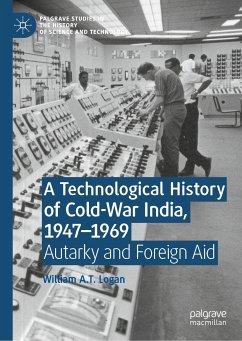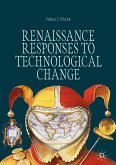--Sharma Shalendra, Lingan University
This book provides a technological history of modern India, in particular the Nehruvian development in the context of the Cold War. Through a series of case studies about military modernization, transportation infrastructure, and electric power, it examines how the ideals of autarky and technological indigenization conflicted with the economic and political realities of the Cold War world. Where other studies tend to focus on the political leaders and economists who oversaw development, this book demonstrates how the perspective of the engineers, government bureaucrats, and aid workers informed and ultimately implemented development.
William A.T. Logan is Assistant Professor of History at Pacific Union College, USA.
Dieser Download kann aus rechtlichen Gründen nur mit Rechnungsadresse in A, B, BG, CY, CZ, D, DK, EW, E, FIN, F, GR, HR, H, IRL, I, LT, L, LR, M, NL, PL, P, R, S, SLO, SK ausgeliefert werden.









